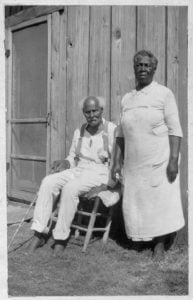Sent to: North and South Carolina, Georgia, Alabama, Louisiana, Texas, Arkansas, Tennessee, Kentucky, Missouri, Mississippi, Oklahoma. April 14, 1937 Mr. Edwin Bjorkman State Director, Federal Writers’ Project Works Progress Administration City Hall, Fifth Floor Asheville, North Carolina Dear Mr. Bjorkman: We have received more stories of ex-slaves and are gratified by the quality and interest of the narratives. Some of these stories have been accompanied by photographs of the subjects. We would like to have portraits wherever they can be secured, but we urge your photographers to make the studies as simple, natural, and “unposed” as possible. Let the background, … Read more

